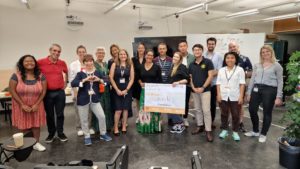Aug 2022: Transdisciplinary Quality of Life Summer School
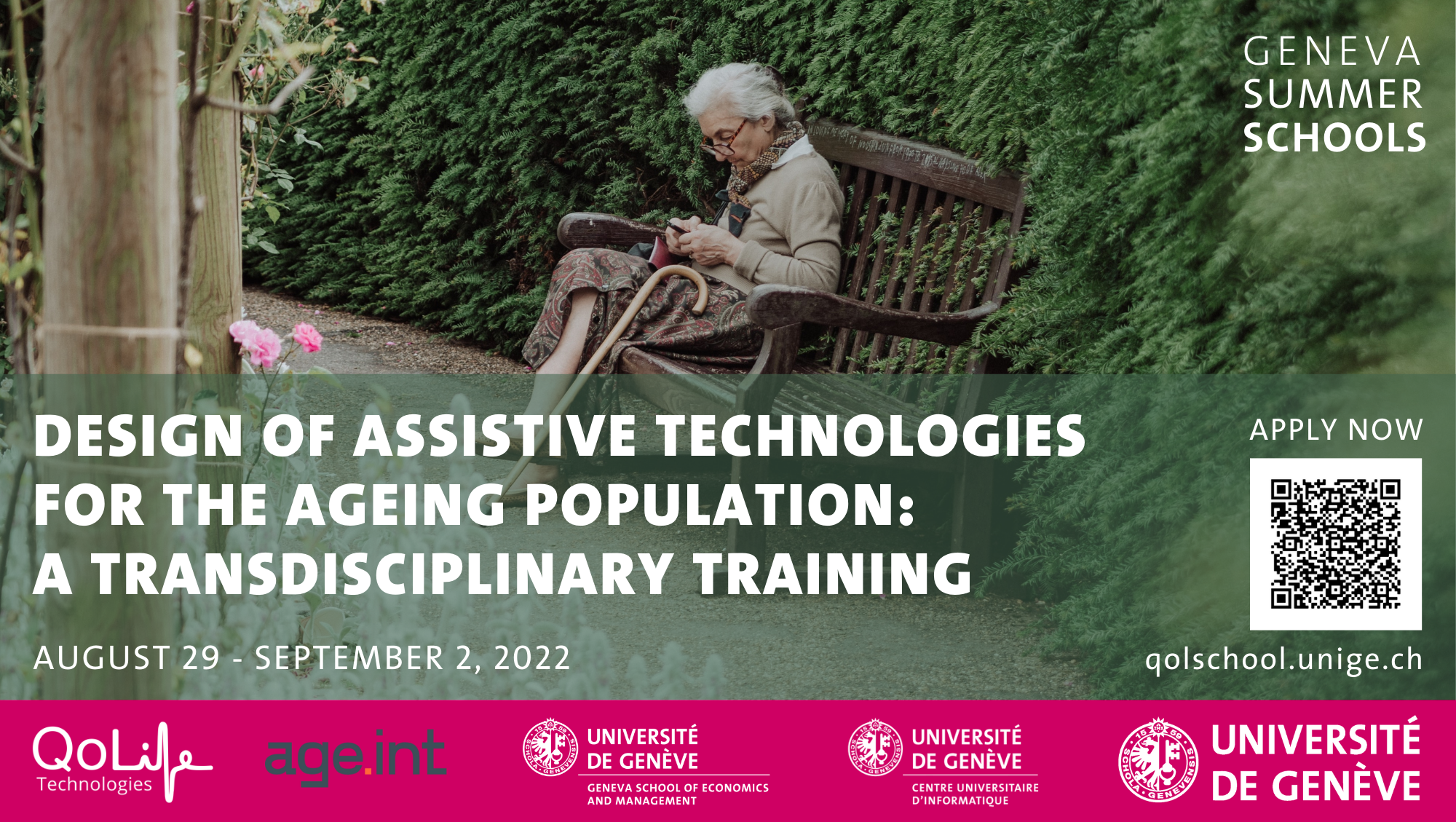
This summer school is organized by the Quality of Life (QoL) technologies. It is part of the AGE-INT initiative, which aims to build Switzerland’s international expertise around innovative solutions for an ageing society.
More information can be found at: qolschool.unige.ch
Download the Summer School Flyer here.
Background: The population is ageing at a much faster rate than in the past, resulting in a significant increase in the number of people requiring assistance to live longer in good health [1, 2]. Over the past decades, researchers investigated the use of assistive technologies to maintain the ageing population’s good health and delay care dependency [3, 4]. The summer school will address a number of important questions at the heart of technology and the ageing population today. Participants will be able to learn about different types of assistive technologies, their application areas, and the design considerations related to such technologies, but also the ethical considerations to be taken into account while designing and implementing such systems. The course will include lectures, case studies, mock debates, group work and more. Through a project-based approach and a human-centred design process, the course will emphasize the importance of interdisciplinarity, collaboration and end-user participation when designing new objects, products, services or experiences for the ageing population.
[1] Ageing and health. https://www.who.int/news-room/fact-sheets/detail/ageing-and-health
[2] Assistive technology. https://www.who.int/health-topics/assistive-technology
[3] Pramod, D. (2022). Assistive Technology for Elderly People: State of the Art Review and Future Research Agenda, Science & Technology Libraries, DOI: 10.1080/0194262X.2021.2024481
[4] Saborowski, M., and Kollak, I. (2015). “‘How do you care for technology?’ – Care professionals’ experiences with assistive technology in care of the elderly,” Technological Forecasting and Social Change, vol. 93, pp. 133–140, Apr. 2015, doi: 10.1016/j.techfore.2014.05.006.
Objectives: The main objectives of the Summer School are for students to:
- acquire a strong understanding of the constraints but also the opportunities related to active and passive data sensing for the ageing population;
- become familiar and gain insights into the functioning and implications of designing, implementing and evaluating assistive technologies (sensing and actuating devices and services) for an ageing population;
- understand ethical considerations to be addressed while working with assistive technology for an ageing population and the importance of data governance.
Target audience: advanced graduates, PhD students, post-docs, junior researchers and practitioners, care professionals, providers (e.g., start-up owners), and social scientists working in the domain of the ageing population. We seek to cultivate a transdisciplinary approach, the course is, therefore, open to a broad range of disciplines and stakeholders (i.e. social sciences, health/life/medical sciences, environmental sciences, political sciences, computer science/engineering, law, …) with an interest in digital technologies and ageing.
Structure: Each day of the week will be organized around a specific theme and follow the pattern of 1) specific use case by thematic 2) challenges and lessons learnt 3) best practices to design, implement and evaluate assistive technologies for the ageing population following ethical regulations and considerations.
Teaching: The transdisciplinary Summer School will be taught in English by a variety of academic experts in their respective fields. The summer school will use a mix of use-case and project-based learning. The morning sessions will be reserved for presentations from our speakers while the afternoon sessions will focus on hands-on and practical implementation of self-selected group project based on the morning lectures.
Online learning platform MOODLE
Schedule:
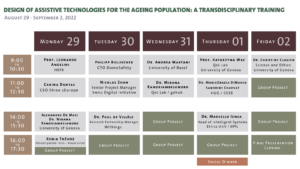
Speakers:
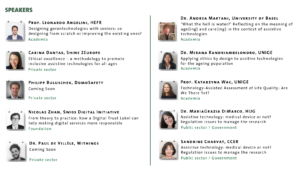
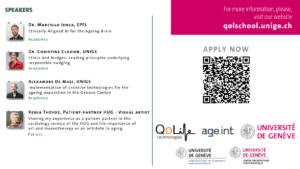
PROJECTS
- Crossing generations For the younger generation to learn and understand soft skills they don’t normally obtain from the formal education
- Joob Assistive system that supports seniors in offering their experience with possible organizations that are looking for this type of knowledge THE WINNER!
- Boiling Frog Reducing the risk of developing Vascular Dementia in working-age individuals

